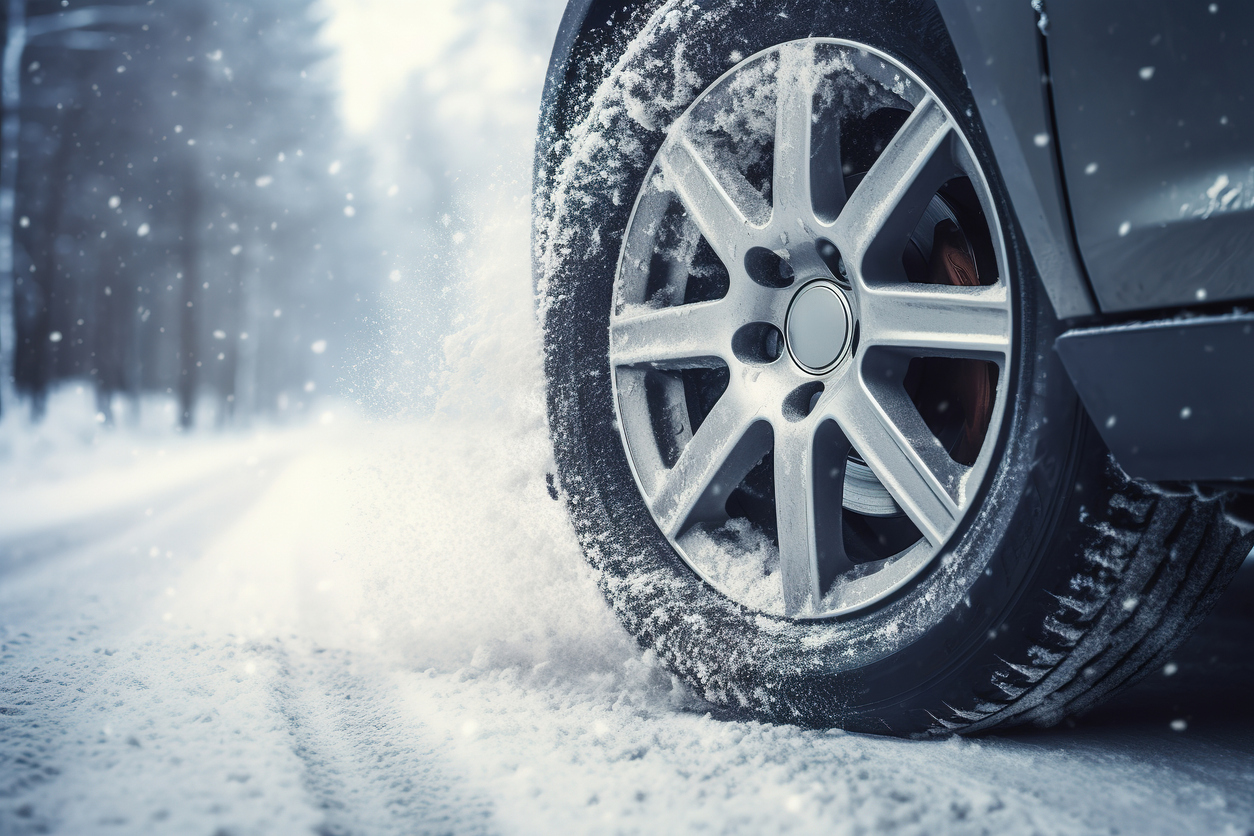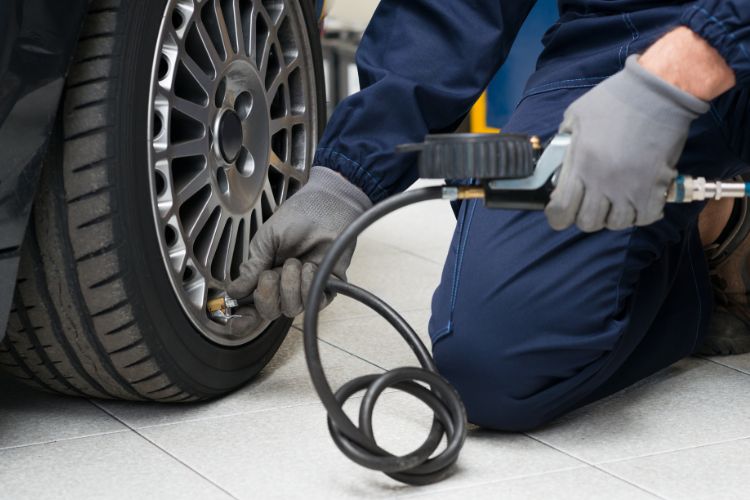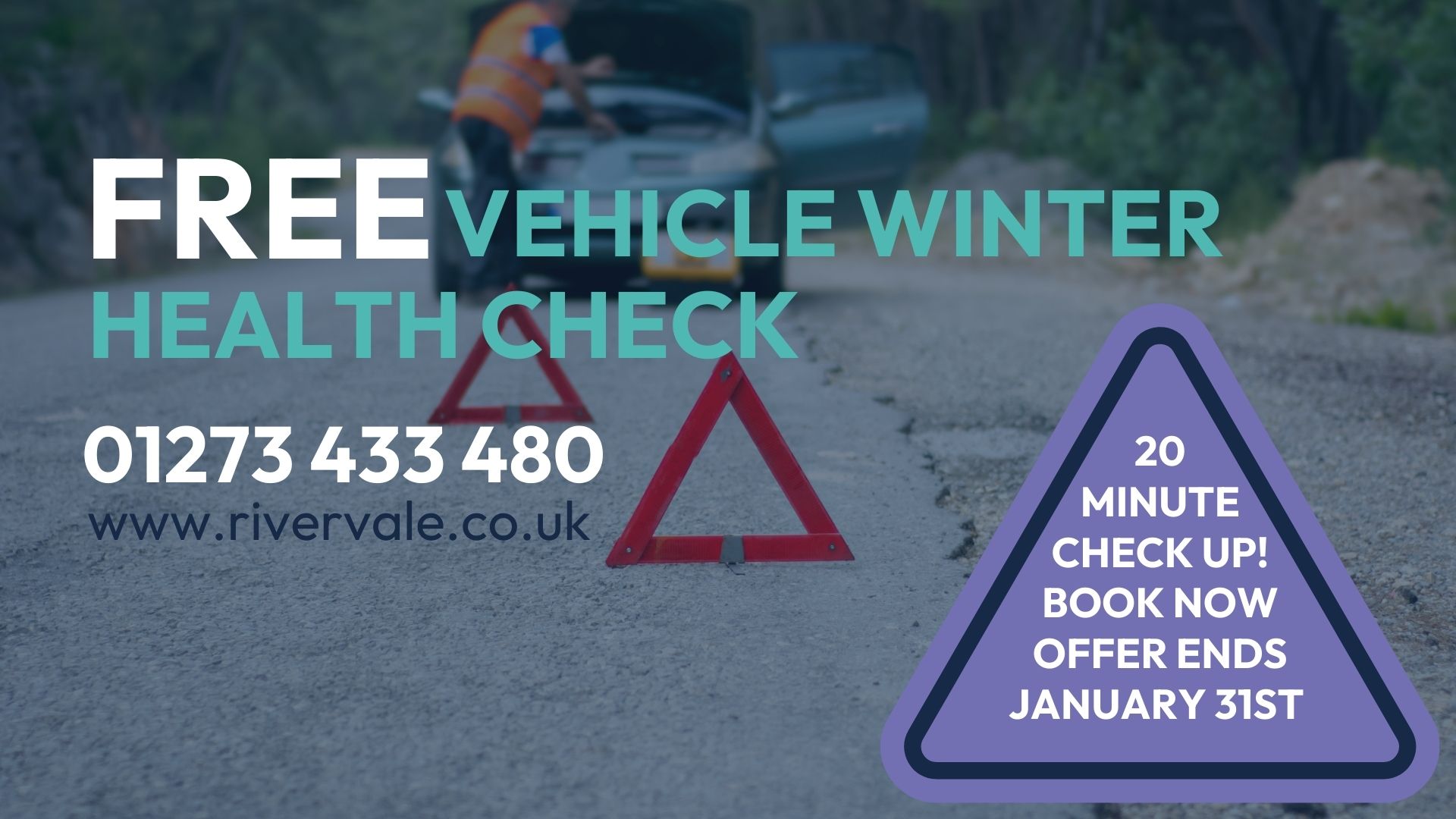Why Every Car Should Have a Winter Health Check

As we pile on extra layers and turn up the heating to get through the cold winter months, it’s worth sparing a thought for our cars. They’re often left to brave the snow, ice, and rain on their own. A bit of winter car care can help keep you on the road during the darker days and prevent any unwanted surprises.
If you operate a minibus, you maybe interested in our recent article: Take better care of your minibuses this winter
At Rivervale, we’ve been in the motor trade for over 30 years.
In that time, we’ve seen our fair share of winter-related car issues.
Our advice is simple: make sure you get a winter health check to reduce your chances of breakdowns or other motoring problems during the most challenging months of the year.
Free Winter Health Check
At Rivervale, we offer a Free Winter Health Check at our Bosch Service Centre. The winter months can be particularly tough on vehicles, but a few quick checks could spot potential issues before they leave you stranded on a cold, dark evening.
Here are some essential checks you should perform before winter sets in. Each one is included in our free winter health check.
1. Wipers
It’s illegal to drive without a clear view of the road ahead. During the summer, your wipers might not get much use, but winter is a different story. Make sure your wipers aren’t split or smearing the windscreen instead of clearing it.
Extra tip: If you notice a chip in your windscreen, get it fixed as soon as possible. Cold weather can cause a small chip to expand and eventually lead to a full crack. It’s far cheaper to repair a chip than to replace an entire windscreen.
Never: Run your wipers when they’re obstructed by ice on the windscreen. This could blow the fuse, meaning you’ll need to replace it before you can drive anywhere.
2. Washer Fluid
Washer fluid is essential during winter. While you may get away with using plain water in summer, the freezing temperatures of winter make it vital to use a screen wash that won’t freeze. Always check the freeze point on the label – it’s usually noted on the bottle.
No washing-up liquid! Over the years, we’ve seen many people fill their washer tanks with washing-up liquid. It creates a smeary, foamy mess and can clog up your spray nozzles. Stick with proper screen wash to avoid any issues.
3. Warning Lights
The lights on your dashboard are your car’s way of communicating with you. If any lights stay on after you’ve started the car, it’s best to investigate them now rather than later. Ignoring a warning light could lead to a breakdown – and trust us, you don’t want to be waiting for a recovery service on a freezing winter’s night.
4. All Exterior Lights
Make sure all your bulbs are working: indicators, brake lights, fog lights, headlights, and the often-forgotten number plate light. With fewer daylight hours in winter, you’ll likely be driving in the dark more often. Functioning lights help other drivers see you in poor visibility conditions like fog, rain, or snow.
Remember: Driving with a blown bulb is illegal, and you could face a fixed penalty notice or even get 3 points on your licence.
Want your bulbs checked professionally?
Ensure your lights are in top condition before the darker nights set in. Properly functioning bulbs are crucial for your safety on the road.
Book Now5. Fluid Levels
Engine oil: Without sufficient oil, your engine could seize, leaving your car undriveable. If you’re not sure how to check your oil levels, get someone who does. Engine oil lubricates all the moving parts and helps keep the engine cool.
Brake fluid: Winter roads are often wet or icy, which increases your stopping distance. Ensuring your brake fluid is topped up and in good condition is essential for effective braking. It’s generally recommended to replace brake fluid every two years, as it can degrade over time.
Coolant: Your car’s coolant prevents overheating. In winter, it’s important that your coolant contains antifreeze – otherwise, it could freeze, causing serious damage to your engine. Most coolant in the UK should be sufficient to protect down to around -15°C, but check the freezing point and the mix ratio of water to antifreeze.
6. Fan Belt
The fan belt (or serpentine belt) is a rubber component that connects various pulleys in your car, powering essential systems like air conditioning, heating, and power steering. In winter, this belt goes from freezing cold temperatures overnight to much warmer conditions when the engine is running. These rapid temperature changes can make the belt more likely to crack or snap. Check for any signs of wear before the cold weather hits.
7. Tyres
Your tyres are the only point of contact between your car and the road, so they need to be in good condition. While the legal minimum tyre tread in the UK is 1.6mm, most garages recommend at least 3mm for better grip during the winter. If you have a full-size spare tyre, don’t forget to check that as well.
Need more tyre care tips?
Proper tyre maintenance is key to your safety, especially in challenging weather conditions. Learn how to keep your tyres in optimal shape and ready for the winter with our guide on checking your tyres.
Read More
8. Brake Pads and Discs
Brakes are vital all year round, but they’re even more crucial in winter when stopping distances increase due to wet or icy roads. Regularly check your brake pads and discs to ensure they’re not worn out. If you’re unsure how to do this yourself, have a professional check them for you.
9. Heater Blower and Heated Rear Screen
As temperatures drop, a working heater blower and heated rear screen are more than just luxuries—they’re essential. Your heater blower helps to keep the windscreen clear from mist and condensation. If it’s not working properly, you may struggle to maintain visibility during your journey, which is especially dangerous in winter conditions.
The heated rear screen is just as important, as it clears frost or fog from the back window, giving you a clear view of the road behind. Make sure both the blower and rear screen are functioning before the winter weather sets in. If you notice any issues, it’s worth getting them fixed sooner rather than later.
Final Thoughts
There are many checks you can do at home, but some, such as checking brake pad thickness, may require a professional. All of the checks above are important measures of your car’s health as we head into winter. If you’re not confident in performing these checks yourself, it’s well worth having a trained mechanic do it for you – it could save you time, hassle, and money in the long run.
Book Your Free Winter Health Check
At Rivervale, our Winter Health Check takes just 20 minutes. While you wait, you can enjoy a complimentary coffee in our cosy cafe area. We’ll let you know if we spot any issues, so you can get them sorted before the worst of the winter weather arrives.

Book your free winter health check online or give us a call on 01273 433480 to ensure your car is ready for the cold!
